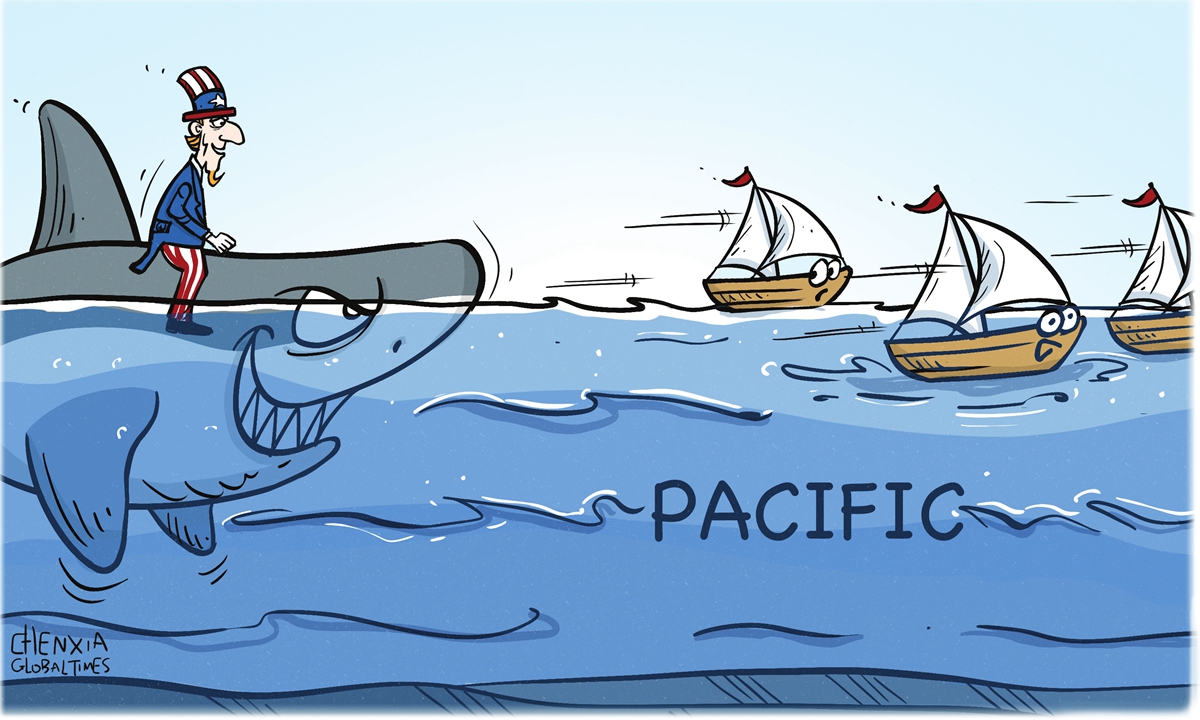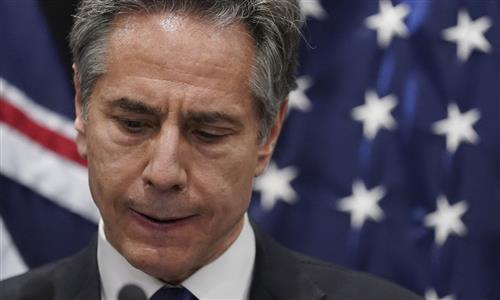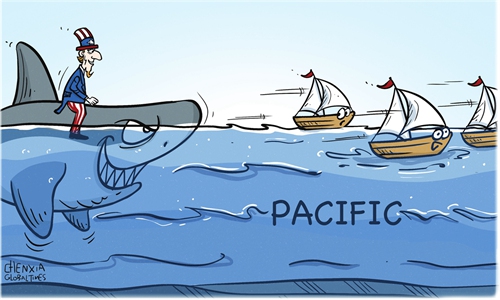
Illustration: Chen Xia/Global Times
The Biden administration kicked off a second summit with Pacific island leaders on Monday and it has made no secret of its desire to confront and compete with China for influence in the South Pacific region. The primary objective for the US in this summit is to counter and weaken China's collaboration with South Pacific countries. This narrow-minded motive reflects the US' hegemonic mind-set and also reveals a lack of respect toward the nations in the South Pacific.Western media bluntly stated that the summit is "part of a U.S. charm offensive to block further Chinese inroads into a strategic region Washington has long considered its own backyard." The main purpose of the US hosting this summit is to prevent China's increasing influence in the South Pacific region. Since China signed a regional security agreement with the Solomon Islands last year, the US has particularly paid increasing attention to the South Pacific region. The US' focus on Pacific island countries is to counter China, rather than genuinely offering support to regional development, a mentality that's filled with arrogance.
At the same time, the US' attention is pretentious as the US only makes empty promises. During the previous US-Pacific Island Forum Leader's Summit, the US proposed to provide $810 million in aid. However, to this day, the $810 million from the US has not been approved by Congress. Zhou Fangyin, professor at the Guangdong Research Institute for International Strategies, told the Global Times that the US government is facing a shutdown next week, this means that it will be difficult for any economic assistance promised by the US to Pacific island countries to be fulfilled.
For Pacific island countries, their greatest concerns are climate change, economic development, and social stability. In these aspects, China upholds "four full respects" and mutually beneficial cooperation with South Pacific countries. In contrast, the US, under the guise of aid, actually promotes its own ideology and attempts to drag the region into its anti-China alliance, turning Pacific island countries into US pawns.
The US has long neglected the South Pacific region. In recent years, as China's cooperation with the South Pacific region has strengthened, its mutually beneficial cooperation has been welcomed by the governments and peoples of the Pacific island countries. However, the US perceives this as a threat and a challenge to its hegemonic status, thus increasing its attention on the region. The US is desperately trying to regain its influence in the South Pacific region. Chen Hong, executive director at the Asia Pacific Studies Centre of East China Normal University, told the Global Times that the US' attempt to woo and coerce Pacific island countries reflects a narrow-minded motive. The more the US promotes its "cooperation with these countries," the more it highlights the weakness and fragility of their relationship.
Zhou said that the US hopes to include Pacific island countries in its Indo-Pacific strategy, but these countries do not want to take sides in the competition between China and the US. Being involved in the competition led by the US brings no benefits to Pacific island countries. Despite the US' strategic layout against China, its guiding ideology is flawed, as it disregards the interests and dignity of local countries in order to maintain its own hegemony. Solomon Islands Prime Minister Manasseh Sogavare and Vanuatu Prime Minister Sato Kilman reportedly will not attend the summit. The absence of the two prime ministers can be seen as representing the sentiment of Pacific island country leaders, which is a rejection of US' selfishness.


